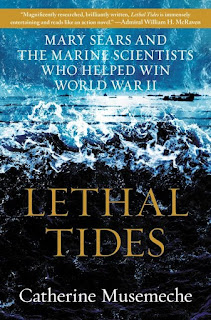 Chicago and has been a pediatric surgeon for more than three decades. Musemeche also has an MBA from the Anderson School of Management at the University of New Mexico and a JD from the University of Texas School of Law. Musemeche’s first book, Small, was longlisted for the E.O. Wilson/Pen American Literary Science Award and was awarded the Texas Writer’s League Discovery Prize for Nonfiction in 2015. She has also contributed to the New York Times’s “Motherlode” blog, KevinMD.com and EMS World. She lives in Austin, Texas.
Chicago and has been a pediatric surgeon for more than three decades. Musemeche also has an MBA from the Anderson School of Management at the University of New Mexico and a JD from the University of Texas School of Law. Musemeche’s first book, Small, was longlisted for the E.O. Wilson/Pen American Literary Science Award and was awarded the Texas Writer’s League Discovery Prize for Nonfiction in 2015. She has also contributed to the New York Times’s “Motherlode” blog, KevinMD.com and EMS World. She lives in Austin, Texas.
Musemeche applied the Page 99 Test to her new book, Lethal Tides: Mary Sears and the Marine Scientists Who Helped Win World War II, and reported the following:
Page 99 of Lethal Tides: Mary Sears and the Marine Scientists Who Helped Win World War II, illustrates Mary Sears’ talent for researching even the most mundane questions, a skill that would later serve her well in her role as naval oceanographer. At Woods Hole Oceanographic Institution she became “the go-to person for answering queries from every direction...” On page 99 I describe how Sears answered a simple query from a thirteen-year-old girl looking for information on the “different kinds of salmon.” Sears instructed the child to start with the Encylopedia Britannica and from there to go to the public library and onto the U.S. Fish and Wildlife Service. Sears further directs the young student to visit the Museum of Comparative Zoology at Harvard and to seek out the index of the Journal of the Fisheries Research Board of Canada because the Canadians had done more research on salmon than anyone else. She concluded by writing “if you read Russian, you would find quite a lot scattered in their scientific periodicals...” Mary Sears was an inveterate researcher. Over her career she filled out about 250,00 index cards to help her keep track of references. Her collection was later published as a fifteen-volume oversized set of oceanographic indices, a remarkable feat in the pre-computer era. When asked, Sears used her encyclopedic knowledge of the oceanographic literature to produce the most complete answer imaginable, even for a thirteen year old.Visit Catherine Musemeche's website.
Browsers opening Lethal Tides to page 99 would no doubt come away with the impression that Mary Sears was a very studious person and an exacting researcher. While they would have no idea of the essential role she played during World War II churning out oceanographic intelligence for the Pacific Campaign, they would understand that she was the perfect person to be tasked with such a grave responsibility. In this sense the “quality of the whole” stipulated by Ford Madox Ford would be met, but not the finer details. To find out exactly how Sears applied her gift for research a reader would need to delve further into Lethal Tides. They would discover that she lead a top-secret team of marine scientists in scouring libraries, government agencies and oceanographic survey data to provide the Joint Chiefs with information about tides, currents, waves, barrier reefs, bioluminescence and bottom sediments that could affect amphibious combat operations. Sears herself was asked to calculate tidal data for last minute, top secret invasion targets in the middle of the night.
Mary Sears was just one of the vast network of unsung women whose hidden talents supported our fighting forces during World War II. They ranged from scientists to mathematicians to nurses to counterintelligence operatives. Many women, like nurses serving in combat zones and spies serving behind enemy lines, risked and lost their lives but for decades little was known about them. The history of war was mostly written by men and women’s stories went untold. I spent four years researching and writing Lethal Tides so that the world would know what Mary Sears and the scientists she worked with did for the Navy and our troops fighting overseas and finally take their rightful place in history.
--Marshal Zeringue



